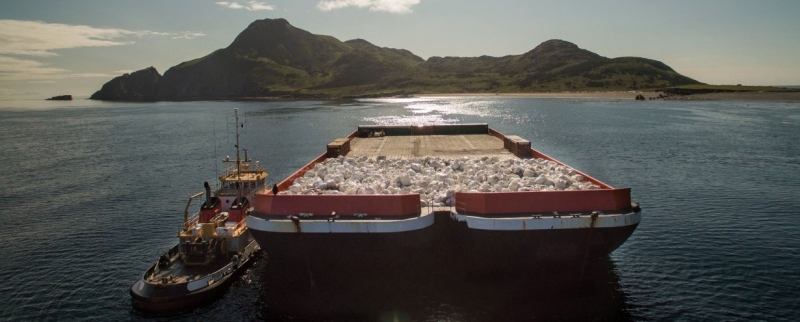By: Nir Barnea, Pacific Northwest Regional Coordinator for the NOAA Marine Debris Program
Marine debris is a big global problem that must be addressed on multiple fronts: outreach to stop littering and encourage better use of products, research to investigate and inform, and of course, removal of marine debris to alleviate its harmful impacts. When it comes to removal, the options range in complexity. Simple removal projects may include basic removal of marine debris by hand, whereas more complicated efforts could include professional divers using sophisticated equipment to remove lost fishing gear or removal of abandoned vessels using a barge and large cranes.
The marine debris community is resourceful and creative, and over time has developed a number of innovative removal methods. From diver surveys in the remote Northwestern Hawaiian Islands to using helicopters to remove marine debris in inaccessible parts of Alaska, these methods provide creative solutions to remove marine debris. Since what works for one, could work for the many who may have similar challenges and needs, the NOAA Marine Debris Program has assembled several method overview summaries to facilitate better sharing of innovative techniques for marine debris removal. These resources can now be found on our website and include a short description of the highlighted method, as well as a point of contact whom can be contacted for help and to provide more information on the details of the project.
We encourage you to check out this resource at https://marinedebris.noaa.gov/innovative-removal-projects and hope that it can help facilitate future marine debris removal efforts.


We must stop buying plastic containers Ok but before all stop producing !!! What is not packed in plastic today? it is part of the obstacle course for shopping without plastic containers. Agro food manufacturers and disgusting household products are responsible! Let them be condemned to finance the cleaning! Not difficult, their name is written on every bottle of laundry shampoo, toothbrush, tube of toothpaste found on all beaches of all continents or floating by dying fish. By 2050 There will be more plastic than fish in the sea. If Air France and airlines started by example by stopping to distribute a kit full of plastic to each passenger! It's sickening outrage that nothing is put in again or so little! They must be sentenced to clean up!